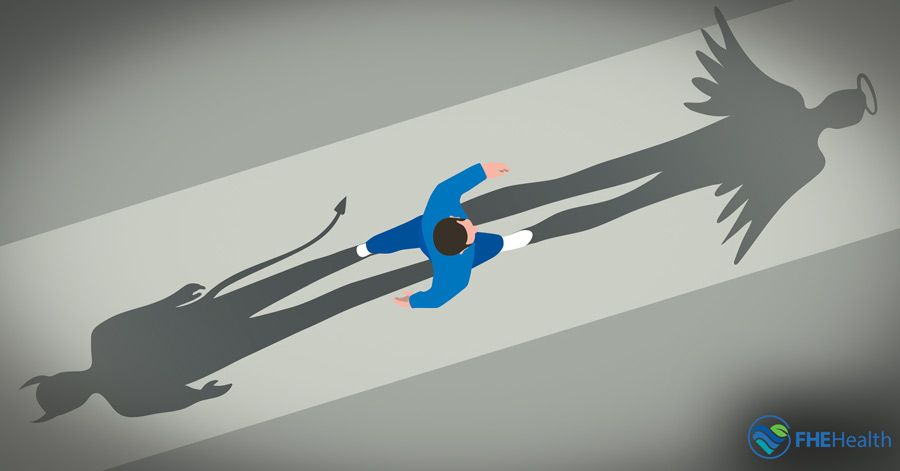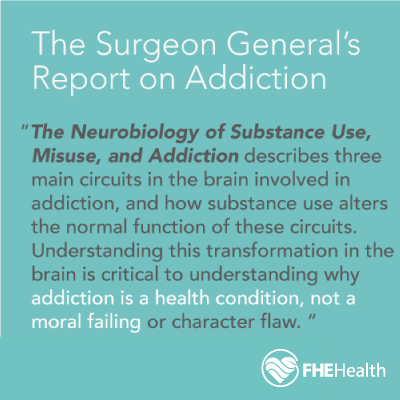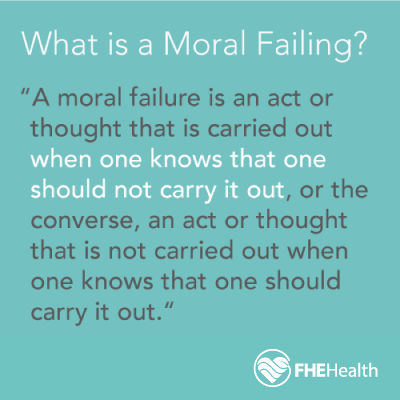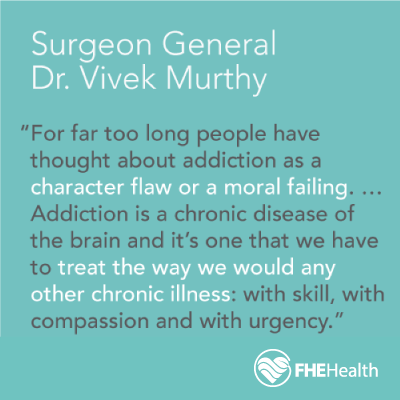
Updated May 16, 2023
It is important to differentiate addiction from a moral failure. Those plagued with a medical disease are prone to a complete lapse in judgement in direct conflict with a moral code, but from a medically induced disassociation with reality.
Drug Addict or Bad Person?
 There is widespread accusation and stereotype into the character of those addicdsted to drugs and alcohol. Those who find themselves in need of addiction treatment do not do so due to a lack of moral code, but as a direct result of a medically induced dissociation from reality. Those individuals who may normally be of a sound of mind can quickly find themselves in direct opposition of many of the moral and ethical beliefs they may typically stand behind once they come into contact with any form of narcotic or alcohol.
There is widespread accusation and stereotype into the character of those addicdsted to drugs and alcohol. Those who find themselves in need of addiction treatment do not do so due to a lack of moral code, but as a direct result of a medically induced dissociation from reality. Those individuals who may normally be of a sound of mind can quickly find themselves in direct opposition of many of the moral and ethical beliefs they may typically stand behind once they come into contact with any form of narcotic or alcohol.
Many of us have friends or family that we have come to know as good people. They are wonderful mothers, fathers, brothers, sisters, sons, and daughters. For as long as we have known them, we have been able to develop a clear and concise understanding as to their being good people. However, we may also recognize that there are times when their behaviors and personalities change in direct opposition to what we have historically know them to be. This change in attitude and behavior can also be found to be directly correlated to their ingesting of drugs and alcohol.
Those who become addicted to drugs and alcohol can be “good” people that begin to do “bad” things. When we see this occurring, it is hard to understand why they would do this. Are they hypocrites? Are they liars?
The reality is that those in need of addiction treatment really need to be restored to sanity. They are predisposed to a disease manifested by a physical allergy and mental obsession that clouds the mind and alters their state of consciousness in a way they may never otherwise be.
What Is a Moral Failure?
 A moral failure is when someone who understands the differentiation between right and wrong elects to do wrong on a conscious level for their own benefit. Those seeking addiction treatment will be the first to tell you that much of what they did was wrong and against their moral code. However, when addicted to drugs and alcohol, there seems to be something inside of that individual that propels them to do what they know they shouldn’t be doing. When sober, this distinction remains equally clear, however, the ability to refrain from such behavior is much easier. They know what’s right and wrong and can make the appropriate choice on their own free will.
A moral failure is when someone who understands the differentiation between right and wrong elects to do wrong on a conscious level for their own benefit. Those seeking addiction treatment will be the first to tell you that much of what they did was wrong and against their moral code. However, when addicted to drugs and alcohol, there seems to be something inside of that individual that propels them to do what they know they shouldn’t be doing. When sober, this distinction remains equally clear, however, the ability to refrain from such behavior is much easier. They know what’s right and wrong and can make the appropriate choice on their own free will.
However, in the case of the addict in need of addiction treatment, the distinction between the two remains clear, yet the ability to make the appropriate decision becomes impossible. In many of the sober fellowships, they refer to this sort of thinking as “insanity”. Many 12-step programs, in fact, spend a great deal of time reviewing character defects during active addiction and the behaviors they partook in during that time that would be considered against their personal moral and ethical codes of conduct. In the 4thstep of both Alcoholics Anonymous (AA) and Narcotics Anonymous (NA), these addicted persons set out to take a rigorous moral inventory to review their behavior and identify their wrongs.
It is common to find that a now sober individual who has had time to review these instances will be appalled at their own behavior, even feeling a significant sense of shame for partaking in activity they would otherwise never engage in. These tremendous feelings of remorse and shame are indicative of someone who understands when they have done wrong and wish to make right. Those truly of moral failures would simply have no remorse nor sympathy for the individuals harmed as it is simply what was necessary for their own personal interests.
How the Stigma of Addiction Can Impact Recovery
Addiction is a highly misunderstood, and therefore highly stigmatized, condition. In fact, according to one study, those who are living with drug addictions are viewed more harshly than those who have physical disabilities or mental illnesses. This doesn’t just affect one individual’s perception of another’s character; this stigma can be seen across social media channels, television shows and movies. While drug and alcohol use may be glamorized, those who develop a dependence on these substances are openly ridiculed or feared.
Unfortunately, the damage stigma causes doesn’t end when the individual obtains treatment. Occasionally, some health care providers may be reluctant to provide addiction treatment, or they may administer treatment with undercurrents of judgment and shame. This contributes needlessly to the individual’s suffering and can make it very difficult to stick with a treatment plan.
Researchers found that people in addiction treatment who were more mindful of negative public opinions regarding addiction were more likely to have low self-esteem and more anxiety and depression. On the flip side, those who had strong social support systems saw the opposite effect during treatment. While stigma can diminish the efficacy and long-term success of addiction treatment, support can help the individual stay consistent in following their treatment plan.
Factors That Can Increase Your Chances of Addiction
Despite persisting stigmas regarding addiction, there are numerous factors that may contribute to someone developing a dependency, and none of them have to do with the individual’s strength of character or moral fiber. While anyone can develop an addiction regardless of cultural or religious background, income bracket, education level or career, many people living with addictions share one or more risk factors.
Genetics
Many scientists argue that there’s a genetic element to addiction. A parent’s alcohol addiction appears to account for about half the risk of their child developing alcohol addiction. This link is especially strong between fathers and sons. Addiction to substances such as cocaine and heroin seems to have an even stronger genetic component. While there are likely many factors that contribute to this, research indicates that certain genes cause individuals to get a bigger pleasure reward from the brain for chemical use than other people get, making them more vulnerable to developing an addiction.
Environment
Environment plays a key role in the likelihood of someone developing an addiction. This may include economic status, their overall quality of life and whether their friends and family have substance use disorders. Early exposure to drugs and alcohol use along with stress can also increase a person’s odds of developing a chemical dependency.
Poverty
Studies have shown a strong correlation between poverty and drug use and addiction. Those who are unemployed, unhoused or have housing insecurity or who have limited social networks due to poverty-related isolation are significantly more likely to misuse drugs and alcohol than those who enjoy greater financial stability.
Trauma
Trauma and addiction often occur side-by-side, with those who’ve experienced a trauma being significantly more likely to self-medicate negative feelings with drugs or alcohol. In some cases, traumatic events can result in disconnection and numbness, making individuals more vulnerable to addictive behaviors.
Addicts Can Recover
 Those seeking addiction treatment can recover from their addiction to drugs and alcohol and ultimately, their poor judgement. Those with moral failures cannot recover because there is nothing in their eyes to recover from. Right and wrong are subjective and they ultimately choose to create a narrative that substantiates their own interests.
Those seeking addiction treatment can recover from their addiction to drugs and alcohol and ultimately, their poor judgement. Those with moral failures cannot recover because there is nothing in their eyes to recover from. Right and wrong are subjective and they ultimately choose to create a narrative that substantiates their own interests.
For those struggling with drug and alcohol addiction who are in need of treatment, you should look inside yourself and realize that you are still a good person held captive by an insidious disease of mind and body. There is a way out, and millions before you have found it and now lead lives in accordance with the moral and ethical principles they have always had but were incapable of sticking to while they were abusing substances.
Treatment for addiction of drugs and alcohol is the first step. Identifying a strong treatment program with experienced medical professionals and compassionate staff can do wonders for your recovery. You will be surrounded with loving individuals that understand your journey without forcing you to feel shame or embarrassment for what you have done, or better yet who the substances have been forced to become.
That sense of understanding and acceptance is what will allow the real you to shine through and force the sickness to leave your body. You will soon glow with happiness, love and compassion. You will be granted plenty of opportunity to right the wrongs you would otherwise never have taken part in. You are good, and you always were. Your addiction is the real enemy here.
Get Help Today at Florida House
As with any other meaningful endeavor, there are often hiccups along the road. Yet this is a minor setback to what lies ahead, though it may not seem like it right now. However, if you do not seek addiction treatment sooner than later, your chances of coming back to live a life free from addiction dwindle by the moment. The pain you suffer from is at risk of becoming more permanent, and everything you ever dreamed of in life becomes that much more difficult to achieve. Those who fall victim to moral failures do not feel that pain, yet you do because you are not a moral failure. You are a recovering addict and alcoholic with all the resources at your finger tips to act right.
If you are ready to take that step and get back to the real you, call Florida House today at (833) 596-3502. Our compassionate team of counselors are standing by to take your call 24/7. Do not hesitate to reach out for help now.






